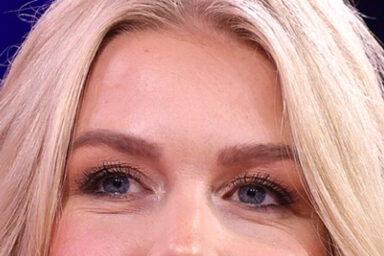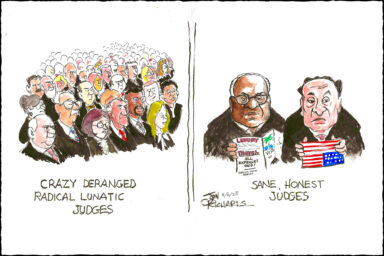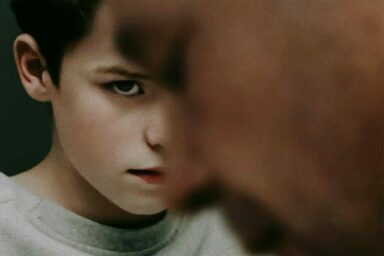Roald Dahl and the Replacement Factory
Rewriting what wasn’t wrong.
|
Listen To This Story
|
By most accounts, Roald Dahl was not a pleasant man. He was antisemitic, irascible, rude, and self-aggrandizing. If he’d invited you to dinner, you might have wanted to stay home that night.
But boy could he write. He had an easy, lyrical style that has captivated generations of children with his twisted tales that suffer fools gladly (unlike their creator).
Recall the grotesque comeuppance of The Twits, the bizarre journey of James and the Giant Peach, or Matilda hiding from a cruel life in a world of books.
Sales of Dahl’s books have topped 250 million. The BFG alone has sold more than 37 million copies.
But if you like your Dahl as you remember him, you might want to hang on to those scuffed paperbacks, because the stories are changing.
Thirty-two years after the author’s death, his estate has decided to rewrite his books. There’s no one rewriter in this curious project, no single Dahl who is posthumously reediting their grandpa’s manuscripts. It’s being credited to the Orwellian-sounding Inclusive Minds, described as “a collective for people who are passionate about inclusion and accessibility in children’s literature.”

They’re not giving you new prefaces, extra material, or early drafts like the Hemingway estate is doing. No, to paraphrase one of Lillian Hellman’s more memorable lines, they’re cutting the texts to fit this year’s fashion.
And you know what the fashion is: It’s that fear of causing offense, treating our young citizens as glass figurines who need to be wrapped in gauze.
I’m fine with the padded playgrounds, simpatico with the seatbelts, on the same page with excising The Protocols of the Elders of Zion. Sure, put a warning label on Gone with the Wind and lock Little Black Sambo in the library vault.
But Roald Dahl? It’s the electricity of his language that has fired up kids for decades.
Supposedly offensive words such as “ugly” and “fat” have been cut. In the Dahl-authored version of James and the Giant Peach, the Centipede sings:
Aunt Sponge was terrifically fat
And tremendously flabby at that
And:
Aunt Spiker was thin as a wire
And dry as a bone, only drier
These lines have been changed to “Aunt Sponge was a nasty old brute / And deserved to be squashed by the fruit,” and, “Aunt Spiker was much of the same / And deserves half of the blame.” That doesn’t even scan.
The Roald Dahl estate is not shy about monetizing their brand. I’ve been to the Dahl museum in Great Missenden, England, and it’s well run. You can visit the author’s curiously ugly (to use a word now wiped from his texts) writing shed and buy Dahl pencils in the gift shop.
When my kids were little we often listened to his books on CDs while driving through the English countryside, and I can honestly report that Miranda Richardon’s rendering of The Witches still gives me the creeps.
Perhaps someone should write a book about a young girl’s favorite author whose books are rewritten by an evil (and ugly!) redactor — until she invents a text-reinstating machine, possibly motored by giant peaches and chocolate, that restores all the books to their original versions.
But the Dahl folk (Dahlicks?) have sold out — to the tune of $600 million. That’s what Netflix paid the family for the complete works, to do with them as they like, including exploiting the material for series, films, gaming, live events, and merchandising.
In the coming years we’ll be getting new versions of Charlie and the Chocolate Factory, The Wonderful Story of Henry Sugar, and The BFG. The filmed musical of Matilda has recently been released. That’s on top of the films and musicals already made.
I don’t particularly mind the adaptations. The Johnny Depp Charlie and the Chocolate Factory may have been awful, but a lot of Dahl’s stories have already proved their worth in filmed versions (though truth be told, the oompa-loompas were more offensive in the original film than in the book). The more the merrier.
But don’t mess with the texts. If the Dahlicks really worry about the sensitivities of fat or ugly kids (but really, if “ugly” is your trigger word, you need some major therapy, or new parents), they can put their concerns in a foreword.
I’ve watched old Warner Bros. cartoons far more disconcerting than anything in the Dahl universe, and they were prefaced by a title card that explained the work emanating from an era far less enlightened than our own.
But was it? I’m beginning to wonder. The 1940s had The Allies literally fighting fascism, a belief system that banned texts that didn’t support their narrow political view. There are school districts in several states right now actually removing books from libraries because the texts supposedly promote an uncomfortable perspective — at least to a handful of aggrieved parents.
I know language changes with the times, and we’re currently realigning our pronouns to account for various gender identifications. There are words that William Faulkner threw around that we’ve rightly tried to remove from the discourse. The current campaign is to make language less offensive and more aspirational — worthy goals.
 But rewriting an author’s work posthumously is a dubious project, and begs the question, who’s next? Dickens with his Semitic Fagin? Shall we rewrite Shakespeare to make his Shylock more anodyne?
But rewriting an author’s work posthumously is a dubious project, and begs the question, who’s next? Dickens with his Semitic Fagin? Shall we rewrite Shakespeare to make his Shylock more anodyne?
I’ve already written about the current mania for restrictive casting, with directors and producers trying to redress historical wrongs.
This is a similar mission, an attempt to correct Roald Dahl’s historic nastiness and insensitivity. The family has already apologized for their patriarch’s (and cash cow’s) antisemitism, endeavoring to get ahead of a story that could have done real damage to their brand. Well done on that.
But nastiness and insensitivity is a key element of that brand, a major theme of his work, i.e., it’s not a bug but a feature. I’m not aware of the letter-writing campaign of children (or even parents) decrying the hurt or indignities suffered from reading his alarming tales. Any such distress can be easily avoided by the simple act of not reading his books.
One of the aspects of Dahl’s oeuvre that appeals to children is his sensitivity to children’s sense of powerlessness, and in his stories he gives them schemes to overcome this. Perhaps someone should write a book about a young girl’s favorite author whose books are rewritten by an evil (and ugly!) redactor — until she invents a text-reinstating machine, possibly motored by giant peaches and chocolate, that restores all the books to their original versions.
I’d buy that. But until that machine is actually invented, I’m holding onto my Dahl classics.
—
J.B. Miller is an American writer living in England, and is the author of My Life in Action Painting and The Satanic Nurses and Other Literary Parodies.




